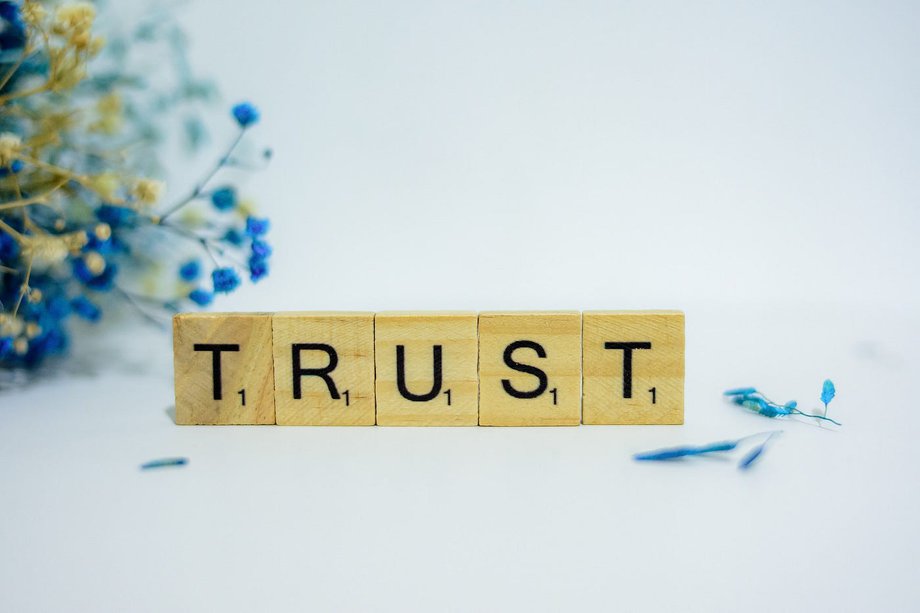How To Build Trust In A New Relationship

Are you starting a new relationship and looking to build a strong foundation of trust? Building trust is essential for a healthy and successful relationship. It requires effort from both partners to establish open and honest communication, establish boundaries and expectations, and show consistency and reliability.
You should also aim to demonstrate understanding and empathy, giving and receiving trust, and building emotional intimacy. Conflict resolution is another important aspect, as it allows you to address issues constructively and find solutions together.
Finally, practicing patience and understanding is key to fostering trust over time. By following these steps, you can cultivate a trusting and secure bond with your partner, ensuring a solid and fulfilling relationship.
Key Takeaways
- Importance of being non-judgmental and accepting
- Trust partner’s intentions and gradually build trust
- Open and honest communication strengthens bond
- Show understanding and empathy for growth and healing
Open and Honest Communication
Open and honest communication is crucial for building trust in a new relationship, as it allows both partners to share their true thoughts and emotions, fostering a deeper understanding and connection.
To establish this open communication, it’s important to develop effective listening skills. This means truly paying attention to your partner, without interrupting or judging. It involves being present in the moment and showing genuine interest in what they have to say.
Additionally, building trust through vulnerability is key. It requires both partners to be willing to share their fears, insecurities, and past experiences, creating a space of trust and acceptance.
By being open and honest with each other, you can create a solid foundation for your relationship.
Now, let’s move on to the next section about establishing boundaries and expectations.
Establish Boundaries and Expectations
Set clear boundaries and communicate expectations to ensure a deep connection is forged from the start. Establishing boundaries is crucial in any relationship, as it helps both partners understand each other’s limits and needs. By openly discussing and setting these boundaries, you create a safe space where trust can flourish.
Setting expectations is just as important, as it allows both partners to know what they can expect from each other. This helps build trust by fostering a sense of security and predictability. When you establish boundaries and set expectations, you’re showing your partner that you value their feelings and needs. This creates a foundation of trust that’ll strengthen your relationship.
Moving forward, it’s important to show consistency and reliability to continue building trust.
Show Consistency and Reliability
When building trust in a new relationship, it’s important to show consistency and reliability. One key way to do this is by keeping your promises and following through on your commitments. Being dependable and trustworthy will help your partner feel secure and confident in the relationship.
Additionally, demonstrating reliability in your actions will show that you’re someone they can count on, further strengthening the trust between you.
Keep Your Promises
Make sure that you’re always true to your word and follow through on all the promises you’ve made to your partner, showing them that they can rely on you and trust your actions. Keeping your promises is crucial in building and maintaining trust in a new relationship.
Here are four ways to keep your promises and strengthen the trust between you and your partner:
- Be realistic: Make promises that you can realistically fulfill, considering your abilities, time, and resources.
- Communicate openly: Discuss your promises with your partner to ensure mutual understanding and agreement.
- Prioritize commitments: Give importance to your promises and fulfill them before other less crucial tasks.
- Apologize and make amends: If you’re unable to keep a promise, apologize sincerely, and make it up to your partner.
By consistently keeping your promises, you show your partner that you are dependable and trustworthy. This sets the foundation for a strong and trusting relationship.
Be Dependable and Trustworthy
Be someone your partner can rely on and trust by consistently being dependable and trustworthy. Building trust through consistency is crucial in a new relationship. Show up when you say you will and follow through on your commitments. This demonstrates that you value your partner’s time and feelings, and that you are someone they can depend on.
Building trust through dependability also means being honest and transparent. Be open about your intentions, feelings, and actions. Avoid hiding things or being secretive, as this can erode trust.
By consistently being dependable and trustworthy, you lay the foundation for a strong and healthy relationship. This will help your partner feel secure and confident in your partnership. As you demonstrate reliability in actions, you will further strengthen the trust between you both.
Demonstrate Reliability in Actions
By consistently showing up and following through on your commitments, you prove to your partner that they can rely on you and that you’re a person of your word. Building trust in a new relationship requires gaining trust through your actions.
When you demonstrate reliability by being consistent and dependable, you create a solid foundation for trust to grow. This means being on time for dates, keeping your promises, and being there for your partner when they need you. Small gestures like calling when you say you’ll or remembering important dates show that you value their trust and take the relationship seriously.
By being reliable, you show your partner that they can count on you, which is crucial for building a strong and lasting bond.
Transitioning into the next section about demonstrating understanding and empathy, it’s important to also consider how these qualities contribute to trust-building in a new relationship.
Demonstrate Understanding and Empathy
When it comes to building trust in a new relationship, it’s crucial to demonstrate understanding and empathy towards each other. One way to do this is by validating each other’s feelings, acknowledging and accepting the emotions that arise.
Additionally, showing empathy and compassion allows you to connect on a deeper level, understanding and sharing in each other’s experiences.
Lastly, being non-judgmental and accepting creates a safe space where both parties feel comfortable expressing themselves without fear of criticism or rejection.
Validate Each Other’s Feelings
Discover the profound connection between you and your partner by actively acknowledging and validating each other’s emotions. Supportive validation is essential in building trust in a new relationship.
Take the time to understand and empathize with your partner’s feelings, letting them know that you hear and accept them. When they share their thoughts and emotions, respond with emotional empathy, showing them that you genuinely care.
Validate their experiences by acknowledging their emotions and reassuring them that it’s okay to feel the way they do. This validation creates a safe and trusting environment where both partners can openly express themselves without fear of judgment or rejection.
By validating each other’s feelings, you lay the foundation for a strong and lasting bond. Moving forward, show empathy and compassion by actively supporting and understanding each other’s needs.
Show Empathy and Compassion
Now that you’ve learned about the importance of validating each other’s feelings, let’s explore another crucial aspect of building trust in a new relationship. Let’s talk about showing empathy and compassion. Active listening and understanding are essential components of this process. It involves truly hearing and comprehending your partner’s emotions and experiences without judgment or interruption. By actively engaging in conversations and demonstrating empathy, you create a safe space for your partner to express themselves fully.
Additionally, providing emotional support and validation reinforces their trust in you. When you show compassion towards your partner’s struggles and offer comfort during difficult times, you deepen the emotional connection between you two. This genuine care and understanding pave the way for a stronger bond.
So, in the following section about being non-judgmental and accepting, you’ll learn how to further strengthen trust in your relationship.
Be Non-Judgmental and Accepting
To establish a solid foundation in your connection, it is crucial for you to cultivate a non-judgmental and accepting attitude towards your partner’s thoughts and experiences. Cultivating acceptance and understanding is key in building trust in a new relationship. By being non-judgmental, you create a safe space for your partner to express themselves openly without fear of criticism or rejection. Nurturing a judgment-free environment allows for honest and vulnerable conversations, where both of you can feel heard and validated.
To better understand the importance of being non-judgmental and accepting, let’s take a look at the following table:
| Judgmental Attitude | Non-Judgmental Attitude |
|---|---|
| Criticizing | Listening |
| Blaming | Supporting |
| Invalidating | Validating |
| Preconceived ideas | Open-mindedness |
| Intolerance | Acceptance |
By adopting a non-judgmental and accepting approach, you create a strong foundation for trust to flourish. This sets the stage for the next step in building trust: giving and receiving trust.
Give and Receive Trust
When it comes to building trust in a new relationship, it’s important to trust your partner’s intentions. Give them the benefit of the doubt and believe that they have your best interests at heart.
Additionally, be trustworthy yourself by being honest, reliable, and consistent in your actions.
Finally, don’t be afraid to discuss any trust issues or concerns that may arise, as open communication is key to building trust and resolving any doubts or insecurities.
Trust Your Partner’s Intentions
Believe in your partner’s genuine intentions to foster trust in a new relationship. Assessing sincerity is crucial in determining if your partner’s intentions are genuine. Look for consistent actions and behaviors that align with their words. Trust is built over time, so be patient and give your partner the opportunity to prove their trustworthiness. Building trust in a new relationship requires strategies such as open and honest communication, being reliable and consistent, and showing empathy and understanding.
| Assessing Sincerity | Building Trust Over Time |
|---|---|
| Observe their actions and behaviors | Communicate openly and honestly |
| Look for consistency in their words and actions | Be reliable and consistent |
| Trust your instincts | Show empathy and understanding |
By trusting your partner’s intentions and gradually building trust, you can create a strong foundation for a healthy and lasting relationship. In the next section, we will explore how to be trustworthy yourself.
Be Trustworthy Yourself
Being trustworthy is essential for creating a strong and lasting connection with your partner. Trust is built on honesty, reliability, and consistency, so it’s crucial to demonstrate these qualities in your actions and words.
One of the ways to build trust is by keeping your promises and following through on your commitments. Show your partner that they can rely on you by being consistent in your behavior and transparent about your intentions.
Another way to build trust is by being open and honest in your communication. Share your thoughts, feelings, and concerns with your partner, and be receptive to their thoughts and feelings as well.
By being trustworthy, you lay the foundation for a healthy and trusting relationship. Moving forward, it’s important to discuss trust issues and concerns openly and find ways to address them together.
Discuss Trust Issues and Concerns
Now that you’ve established yourself as trustworthy, it’s important to address any trust issues or concerns that may arise in your new relationship. Open and honest communication is key when it comes to building trust. Take the time to sit down with your partner and have a heartfelt conversation about any fears or insecurities either of you may have.
This will not only allow you to address and resolve any trust issues, but it will also strengthen the bond between you. To help guide your conversation, consider these three key points:
- Listen attentively to each other’s concerns without judgment.
- Validate each other’s feelings and experiences.
- Collaborate on finding solutions or compromises that’ll help build trust.
By discussing trust issues and concerns openly, you’re laying a strong foundation for building trust in your relationship. This’ll ultimately lead to a deeper emotional connection.
Now, let’s explore how to build emotional intimacy in your new relationship.
Build Emotional Intimacy
Start by opening up and sharing your true feelings and thoughts with your partner, as this will help to build emotional intimacy in your new relationship. Building trust through vulnerability is essential in creating a strong foundation for your connection.
By expressing your emotions and being open about your fears, insecurities, and desires, you allow your partner to understand you on a deeper level. This vulnerability creates a safe space for both of you to be authentic and fosters a sense of trust.
Additionally, nurturing emotional connection involves actively listening to your partner and validating their feelings. Show empathy and understanding, and be present in the moment when they share their experiences. This will strengthen the emotional bond you share and promote a deeper level of intimacy.
As you continue to build this emotional connection, you will be better equipped to resolve conflicts constructively in your relationship.
Resolve Conflicts Constructively
To effectively resolve conflicts in your relationship, it’s important to approach disagreements with empathy and a willingness to find a mutual solution. Conflict resolution techniques can help you build mutual understanding and strengthen the trust in your new relationship.
Here are five strategies to help you resolve conflicts constructively:
- Active listening: Take the time to truly understand your partner’s perspective and validate their feelings.
- Use ‘I’ statements: Express your concerns without blaming or criticizing your partner.
- Seek compromise: Look for solutions that meet both of your needs and find common ground.
- Take breaks: If emotions run high, take a step back and cool off before continuing the discussion.
- Practice forgiveness: Let go of past resentments and focus on moving forward together.
By practicing these conflict resolution techniques, you can foster a healthier and more trusting relationship. Remember, it’s important to also practice patience and understanding in order to continue building that trust.
Practice Patience and Understanding
Practicing patience and understanding creates a harmonious environment where empathy flows freely, nurturing the growth of a deeper connection.
In a new relationship, it’s essential to practice forgiveness and cultivate patience. Building trust takes time, and it requires a willingness to understand and accept each other’s differences.
When conflicts arise, take a step back and try to see things from your partner’s perspective. Be patient with their flaws and mistakes, knowing that nobody’s perfect. Instead of reacting impulsively, take the time to calmly communicate your feelings and listen to theirs.
Show understanding and empathy, allowing room for growth and healing. By practicing patience and understanding, you demonstrate your commitment to the relationship and create a solid foundation of trust.
Frequently Asked Questions
How long does it typically take to build trust in a new relationship?
Building trust in a new relationship can vary in duration due to various factors like past experiences, communication, and consistency. Effective strategies such as open and honest communication, reliability, and showing understanding can help nurture trust.
What are some common signs of trust issues in a new relationship?
Signs of trust issues in a new relationship include constant questioning, secrecy, lack of communication, and difficulty in opening up. Overcoming trust issues involves open and honest communication, building a foundation of reliability, and seeking professional help if necessary.
Can trust be rebuilt after it has been broken in a new relationship?
Yes, trust can be rebuilt in a new relationship. Rebuilding trust takes effort and time. Engaging in trust building exercises, like open communication and setting boundaries, can help strengthen the relationship and restore trust.
How can past experiences affect a person’s ability to trust in a new relationship?
Past experiences can affect your ability to trust in a new relationship by creating trust issues. Rebuilding trust involves open communication, understanding each other’s feelings, and showing consistency and reliability to overcome these challenges.
Are there any warning signs to look out for that indicate a lack of trust in a new relationship?
Warning signs of a lack of trust in a new relationship include constant suspicion, secretive behavior, lack of communication, and unwillingness to open up. Pay attention to these signs to ensure a healthy and trusting relationship.










